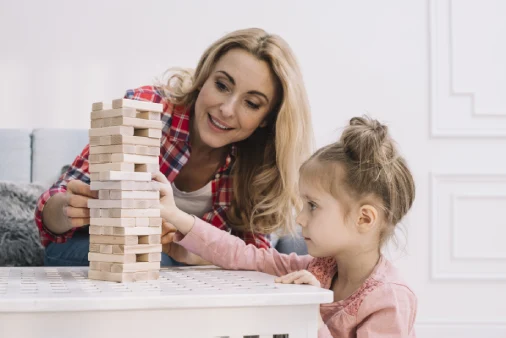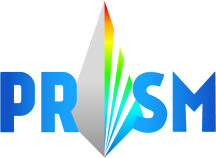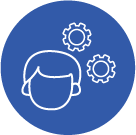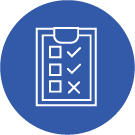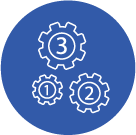Our Approach to ABA Therapy
Intake
A consultant takes your information and contacts your insurance to begin authorization.Assessment
A BCBA assesses your child via direct observation and/or parent interview and creates a personalized treatment plan.Direct Treatment
We match your child and your family with an experienced therapist who best accommodates your needs and availability. The therapist renders 1:1 ABA services, running behavior programs as specified by the BCBA, and collecting data.Quality Assurance
Treatment planning and supervision. The BCBA designs skill acquisition and behavior reduction targets, monitors the data, adds next steps for mastered targets, modifies treatment, and trains and supervises the therapist as necessary.Family Consultation
The Clinical Director, BCBA, and therapist collaborate with your family to empower family members with scientifically proven strategies and to offer training and support.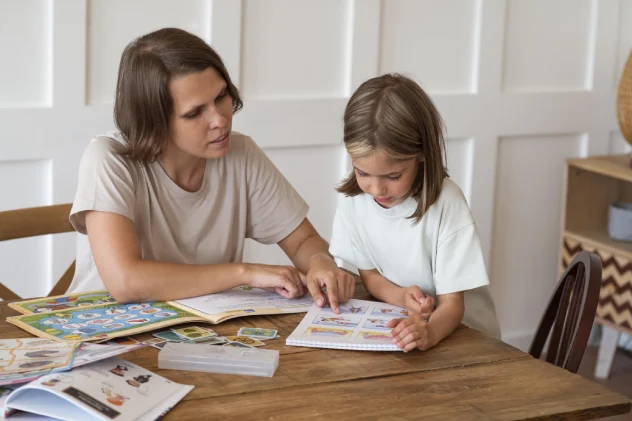
Caregivers and Service Providers
We understand the impact this diagnosis can have on those most directly affected by the learner’s disabilities: those who live with them at home. We appreciate that parents know their child best and value their feedback at every step in the therapy process. Through weekly consultation, parents guide the goals targeted in therapy. The BCBA and therapist collaborate with family members to address any questions or concerns they have regarding treatment and to offer training and support. Working together as a team ensures treatment integrity, and promotes generalization and maintenance of the learner’s progress. Our objective is to empower family members with scientifically proven strategies that will reform everyday encounters, facilitate more positive interactions, and foster more meaningful relationships. We collaborate with schools, speech therapists, physical therapists, and any other providers willing to be our partner in supporting your child’s progress. We have attended IEP meetings at the request of parents.
Speech Therapy
Speech therapy is an intervention service that focuses on improving a child’s speech skills, and understanding and/or expressing language skills including nonverbal language. Speech-language pathologists (SLP’s), are the professionals who provide these services.
We often combine speech therapy with ABA therapy when treating children with autism, as we find this to be the most effective way to improve language skills and communication.
To get started with speech therapy in Northern New Jersey at PRISM, contact us today.
Our Approach to ABA Therapy
Skills we target in therapy include but are not limited to:
Daily living skills such as: using the toilet, brushing teeth, transitioning from a preferred activity to a non-preferred activity, working the best way, cleaning up, completing age-appropriate activities, getting dressed and undressed, putting clothes in the hamper, tying shoes, following a schedule, sitting at the table while eating, eating new foods, wiping, using a tissue, cleaning hands using soap and water, wiping hands and face when done eating, counting objects, listening to a story, and completing a puzzle.
Communication skills such as: labeling and identifying environmental objects, labeling and identifying family members, requesting basic needs and wants, using functional phrases in the appropriate context, responding to WH questions, asking WH questions, responding to social questions, following instructions, verbal imitation, labeling and identifying nouns and verbs, placing objects according to prepositions, expressive and receptive sequencing, singing age-appropriate songs, and responding to yes/no.
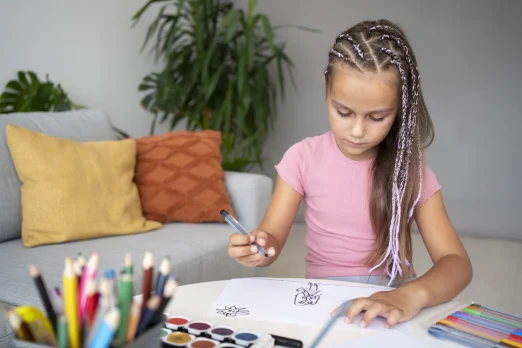
Motor skills such as: buttoning buttons, zipping zippers, coloring, drawing, writing, cutting, fine motor coordination, fine motor imitation, gross motor imitation, gross motor coordination, throwing a ball, jumping, running, performing the motions to age-appropriate songs, climbing stairs, jumping rope, and manipulating small objects to build a model.
Social skills such as: making eye contact in response to name, looking in the direction of a point, initiating a conversation, reciprocating a conversation, responding to social greetings, showing an object to others, playing age-appropriate games, taking turns, waiting, sharing, accepting “no”, interrupting appropriately, imitative play, pretend play, sharing experiences, listening to others, and sharing stories.
At PRISM, we focus on socially significant behaviors that “typical” children don’t need to be taught and that aren’t taught in “typical” classrooms. We teach our learners to demonstrate culturally acceptable behaviors, become “a good friend,” identify emotions, and develop an awareness of others. The more socially adaptive skills our learners develop over time, the more we expand their opportunities to be included among peers and participate in a purposeful lifestyle.
